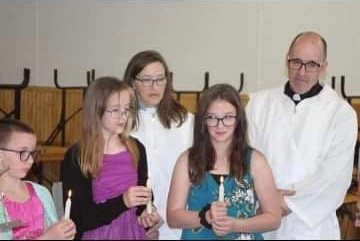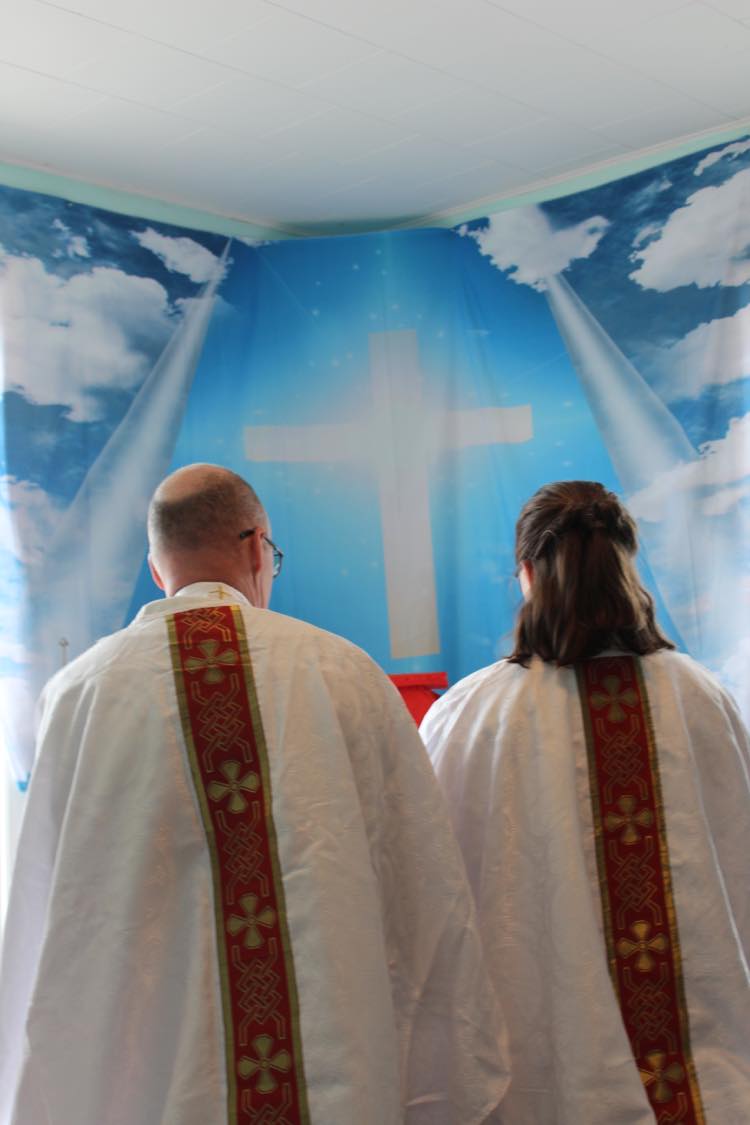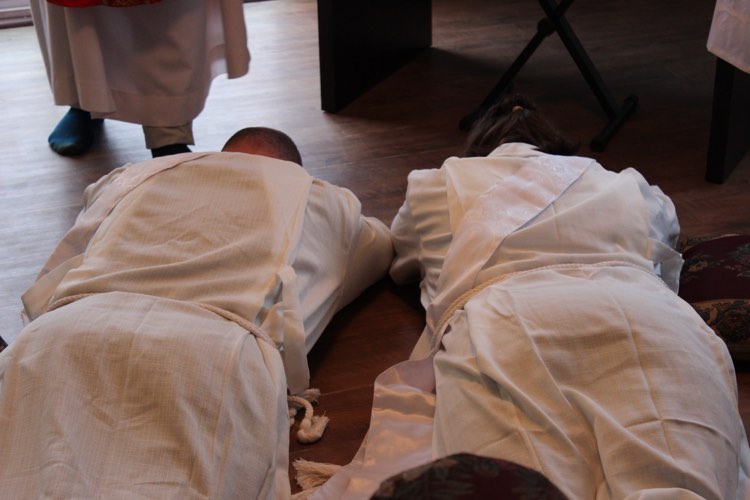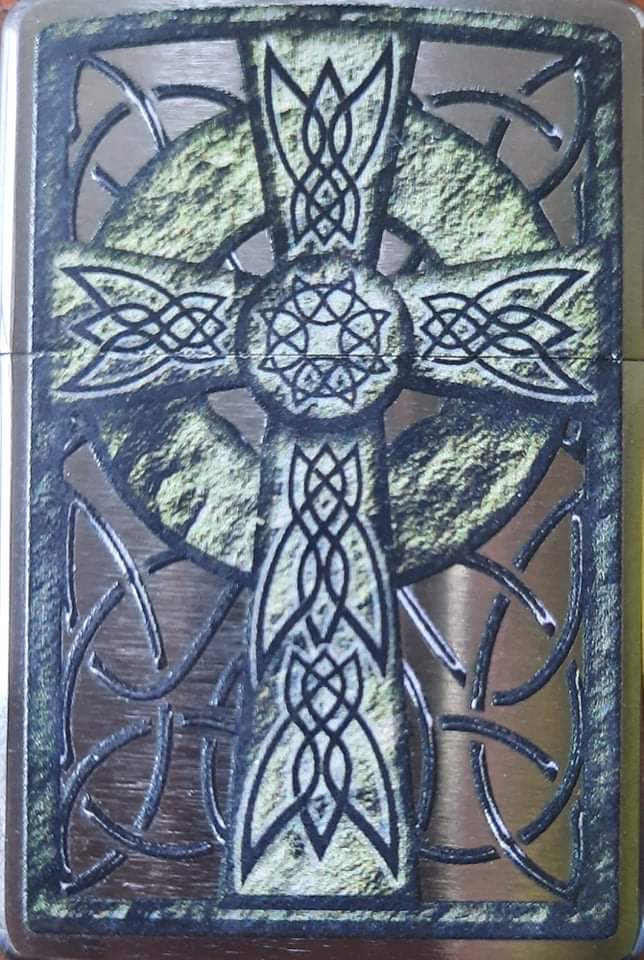- Home
- simply catholic
- Catholic Sacraments
- Catholic Confirmation
Simply Catholic and Welcoming You
Catholic Confirmation in St. Brigit's Community Catholic Church

Our daughters all being Confirmed on the same day
Perhaps the best explanation of Catholic Confirmation starts with the Bishop’s ‘Charge’.
The Charge
Addressing the congregation the Bishop says;
"For the good of His Kingdom, God requires all to be baptised of their own volition. Those who have been Christened or Baptised when young are called to re-affirm the decision made on their behalf in earlier years. As these persons, having learned what their Godfathers and Godmothers promised for them in Christening or baptism, they may themselves, with their own word and consent, openly before God, ratify and confirm the same."
Concise and clear!
Confirmation, in the Catholic Church, is one of the seven sacraments. It is also one of the three sacraments of initiation into the Catholic Church, the other two being Baptism and Holy Communion.
The Catechism of the Catholic Church sees the account in the Acts of the Apostles 8:14–17 as scriptural basis for Catholic Confirmation as a sacrament distinct from Baptism:
"Now when the apostles, who were in Jerusalem, had heard that Samaria had received the word of God, they sent unto them Peter and John. Who, when they were come down, prayed for them, that they might receive the Holy Spirit. For he was not as yet come upon any of them; but they were only baptized in the name of the Lord Jesus. Then they laid their hands upon them, and they received the Holy Spirit."
The Catechism of the Catholic Church states:
"It is evident from it's celebration that the effect of the sacrament of Confirmation is the special outpouring of the Holy Spirit as once granted to the apostles on the day of Pentecost... Recall then that you have received the spiritual seal, the spirit of wisdom and understanding, the spirit of right judgement and courage, the spirit of knowledge and reverence, the spirit of holy fear in God's presence. Guard what you have received. God the Father has marked you with His sign; Christ the Lord has confirmed you and has placed His pledge, the Spirit, in your hearts."
Confirmation, in the Roman Catholic church, is generally conferred around 7+ years of age. In many other catholic churches baptism may not occur until 11 Years of age, in which case catholic confirmation often occurs at the same time (when the sacrament recipient can speak and reason for themselves - at least as far as faith choices and the ability to understand the concept of sin and it's consequences).
However, the Catechism of the Catholic Church,warns: "Although Confirmation is sometimes called the 'sacrament of Christian maturity,' we must not confuse adult faith with the adult age of natural growth, nor forget that the baptismal grace is a grace of free, unmerited election and does not need 'ratification' to become effective."
Even in those countries where the Episcopal Conference has set a later age as normal, a bishop may not refuse to confer the sacrament on younger children who request it, provided they are baptised, have the use of reason, are suitably instructed and are properly disposed and able to renew the baptismal promises.
Under Canon Law, the sacrament of catholic confirmation is to be conferred by a bishop. Provision is given for a bishop, when needed, to authorise a priest to act in his place. Such a provision is limited to the specific priest given the authorisation and only for the time and place specified.
Such an extension of the bishop's office is rarely left ‘open’, meaning that the priest cannot thereafter continue to confirm people as and when he chooses. The exception is that some Monsignors are given that authority from their bishop to confirm alone or when assisting the bishop until such times as the bishop sees fit to withdraw this authority. This generally applies when distances or numbers of candidates are too much for the bishop to effectively handle alone.
In Eastern Catholicism, priests are those who normally administer the Chrismation with holy Myron, (their version of confirmation) and this sacrament can be administered conjointly with baptism.
Catholic Confirmation and The Holy Spirit
At Baptism, we hear of the role of the Holy Spirit in the prayer over the baptismal water:
Father, look now with love on your Church,
and unseal for her the fountain of baptism.
By the power of the Spirit
give to the water of this font
the grace of your Son...
cleanse [those to be baptised] from sin in a new birth of innocence
by water and the Spirit. (Roman Sacramentary)
At Confirmation, we learn the implications of this new life in the Holy Spirit:
All powerful God, Father of our Lord Jesus Christ,
by water and the Holy Spirit
you freed your sons and daughters from sin
And gave them new life.
Send your Holy Spirit upon them
to be their helper and guide.
Give them the spirit of [1] wisdom and [2] understanding,
the spirit of [3] right judgement and [4] courage,
the spirit of [5] knowledge and [6] reverence.
Fill them with the spirit of [7] wonder and awe in your presence. (Rite of Confirmation)
This prayer names the traditional "Seven Gifts of the Holy Spirit." The biblical origin of these seven gifts is found in Isaiah (11:1-3) where he is foretelling the qualities of the Messiah.
These seven gifts are the signs that the Messiah will be guided by the Spirit. The relation of these gifts to the sacrament of Confirmation becomes clear when we remember that the word "Messiah" (Christos in Greek) means "anointed." Jesus was "anointed," filled with the Holy Spirit at his baptism.
At Catholic Confirmation we are anointed with the Holy Spirit. Throughout the Gospels we see how these seven gifts are evidenced through Jesus. They are characteristic of his activity.
Consider the wisdom expressed in His parables; His understanding of the poor and the sick; His right judgement when tested by the Pharisees; His courage to continue the journey to Jerusalem where he surmised what fate awaited him; His knowledge of God's will; His reverence for His Heavenly Father; His awe before the wonders of creation—the lilies of the field, the birds of the air....The seven gifts of the Holy Spirit are the manifestation of the Divine Power active in the life of Jesus of Nazareth.
In Baptism, our sins are washed away and we come up from the water bath or pouring to be clothed in a new garment. Putting on the baptismal garment is a visible symbol of the invisible reality of "putting on Christ."
When we are anointed with oil in Confirmation, it is a visible symbol of the invisible reality of being anointed with the Spirit, being "Christ-ed" or "messiah-ed." We put on Christ, and the sevenfold gifts of the Spirit become our gifts. We pray that the qualities of the Messiah take root in us and become our qualities so that we may become signs of God's presence in the world.
At the actual anointing during Confirmation we hear the words: "(Name), be sealed with the gift of the Holy Spirit." Here the gift referred to is the Holy Spirit Himself. We are sealed with the gift which is the Holy Spirit. The Holy Spirit is God's "first gift to those who believe" (Eucharistic Prayer IV).
Catholic Confirmation
The rite for the celebration of the Sacrament of Confirmation usually takes place at Mass “in order that the fundamental connection of this sacrament with all of Christian initiation may stand out in a clearer light. Christian initiation reaches it's culmination in the communion of the Body and Blood of Christ. The newly confirmed therefore participate in the Eucharist, which completes their Christian initiation” (Introduction 13). The bishop is the ordinary minister of Confirmation. For pastoral reasons he may delegate a priest to administer the sacrament.
With the explanation given, here is the sacrament in full.
Recent Articles
-
Catholic-Confession
Apr 19, 25 08:53 PM
Full breakdown of the Catholic Confession Sacrament of Reconciliation -
Ordination, incardination and dismissal of clergy
Mar 03, 25 06:47 PM
Overview of Ordination to Holy Orders, incardination and dismissal of clergy -
Catholic Last Rites
Mar 03, 25 06:41 PM
An explanation of the Catholic Last Rites and Anointing of the Sick


